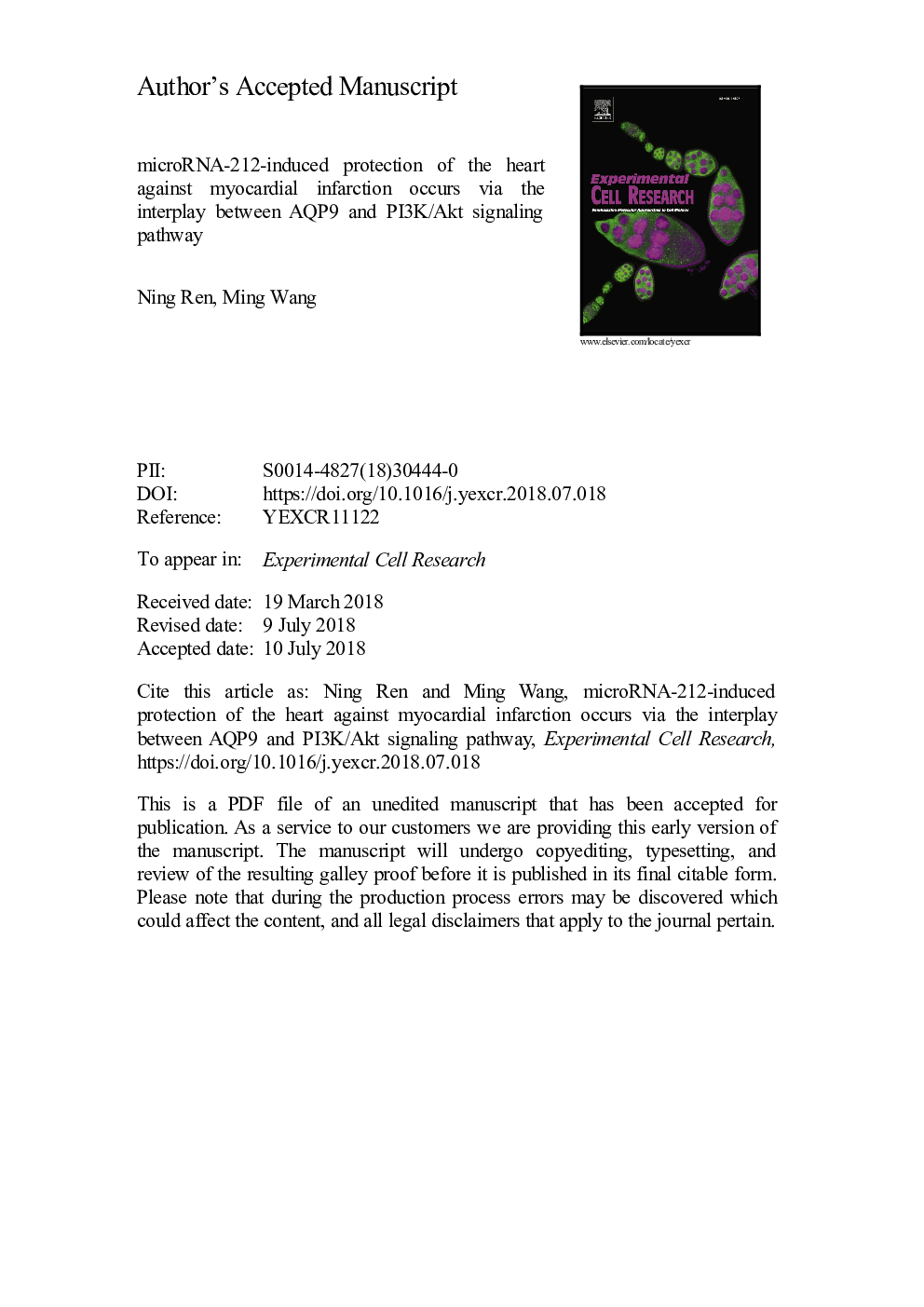| Article ID | Journal | Published Year | Pages | File Type |
|---|---|---|---|---|
| 8949734 | Experimental Cell Research | 2018 | 31 Pages |
Abstract
Myocardial infarction (MI) is defined as the irreversible death of heart muscle that occurs secondary to prolonged lack of oxygen supply, which has resulted in millions of death worldwide. This study was conducted with aims of investigating how microRNA-212 (miR-212) and the inhibition of aquaporin-9 (AQP9) through the activation of the phosphoinositide 3-kinase/protein kinase B (PI3K/Akt) signaling pathway plays a role in the prevention of MI. The relationship between miR-212 and AQP9 was determined with the use of bioinformatics combined with the dual luciferase reporter gene assay. Next, the MI model was established and the cardiomyocytes were transfected with different mimic, inhibitor and siRNAs to investigate the specific activity of miR-212, AQP9 and the PI3K/Akt signaling pathway in MI. The expression of miR-212, AQP9, PI3K, Akt, VEGF, Bax, and B cell lymphoma 2 (Bcl-2), along with cell apoptosis were determined using reverse transcription quantitative polymerase chain reaction (RT-qPCR), Western blot analysis and flow cytometry. Based on the results, AQP9 was verified as the direct target gene of miR-212. MI led to a decrease in miR-212 expression and an increase in AQP9 expression. It was also found that miR-212 activated the PI3K/Akt signaling pathway in MI through the inhibition of AQP9 expression. The overexpression of miR-212 or silencing AQP9 decreased cardiomyocytes apoptosis. These findings indicated that the overexpression of miR-212 inhibited AQP9 by activating the PI3K/Akt signaling pathway, thus decreasing cardiomyocytes apoptosis, promoting vascular regeneration and alleviating ventricular remodeling in rats with MI.
Keywords
Related Topics
Life Sciences
Biochemistry, Genetics and Molecular Biology
Cancer Research
Authors
Ning Ren, Ming Wang,
